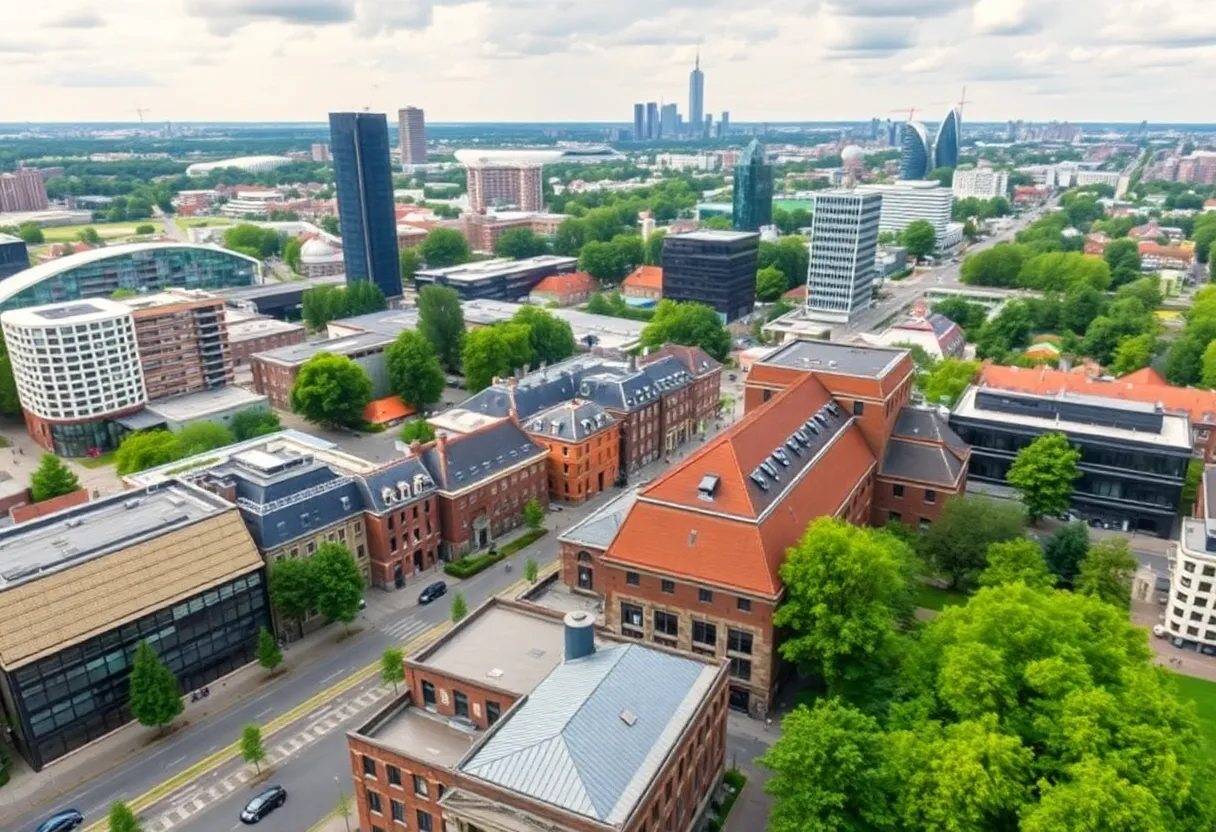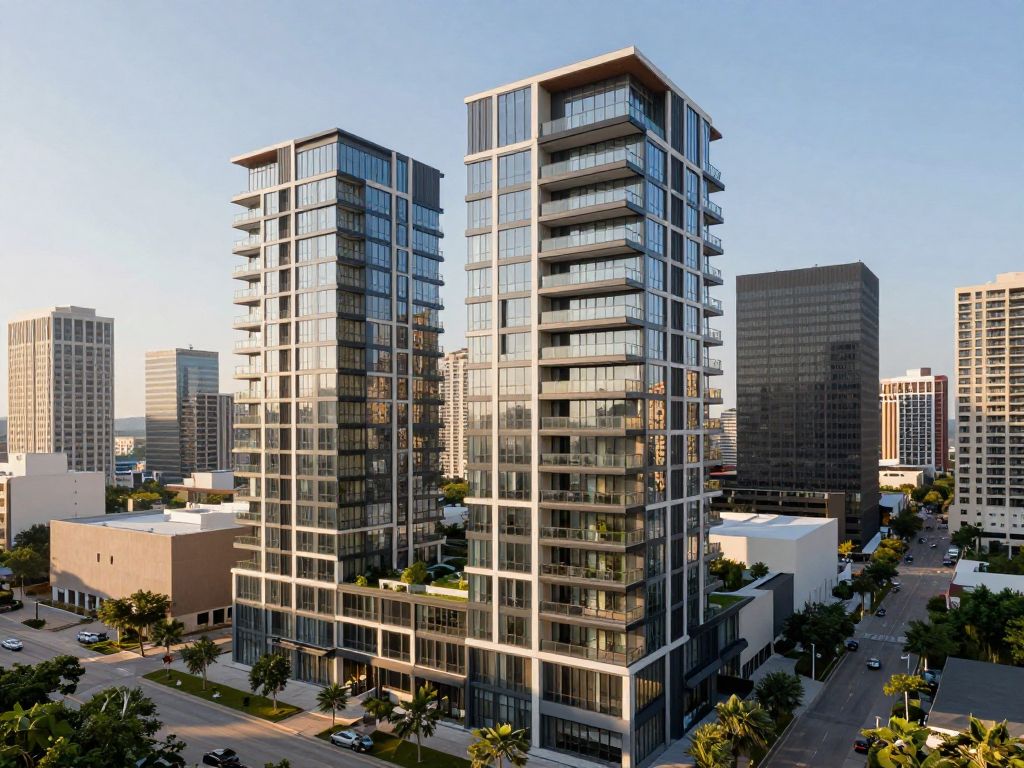Utrecht and Eindhoven, July 27, 2025
News Summary
Utrecht and Eindhoven are evolving into significant technology centers due to trends like remote work and corporate restructuring. With the impact of tech layoffs, these cities attract talent seeking affordable living. Initiatives such as the MVV visa and a 32-hour workweek further enhance their appeal, driving up housing demand and investment in infrastructure. Both cities exhibit rapid growth in property prices and urban development, making them attractive for international tech talent and investors.
Utrecht and Eindhoven Transform into European Tech Hubs Amid Global Shifts
European Cities Experience Surge in Tech Talent and Property Demand
Utrecht and Eindhoven, two prominent Dutch cities, are emerging as central hubs for the tech industry within Europe, driven by recent global economic and political developments. This shift is reshaping the local real estate markets and attracting international professionals, especially those seeking affordable alternatives to traditional U.S. tech centers.
Impact of Amazon’s 2024 Layoffs and Rise of Remote Work
In 2024, Amazon announced layoffs affecting approximately 10% of its workforce across Amazon Web Services (AWS) and corporate departments. The reductions prompted many tech workers to reconsider their current locations, with many opting for more cost-effective and livable European cities. Such movements contribute to an increasing influx of skilled talent into Utrecht and Eindhoven, which are already recognized for their innovation ecosystems.
Policy Measures Enhancing Attractiveness
The Netherlands has introduced policies aiming to draw remote workers and international talent, including a digital nomad-friendly MVV visa and a 32-hour workweek model. These initiatives make the country more appealing for foreign professionals seeking flexible work arrangements and quality of life benefits. By 2025, the Dutch Immigration and Naturalisation Service (IND) processed over 22,000 applications under the “Knowledge & Talent” category, with significant numbers targeted at Eindhoven and Utrecht.
Real Estate Boom and Development Trends
The growing population of tech workers and expatriates has driven demand in both cities’ property markets. In Eindhoven, property prices increased by approximately 7% in 2024, partly driven by the significance of its semiconductor and artificial intelligence (AI) sectors within the Brainport region, which accounts for 11% of the country’s GDP. Major development projects, including infrastructure upgrades and new housing initiatives like Project Beethoven, have attracted substantial investment—€2.5 billion to enhance connectivity and residential options.
In Utrecht, housing markets are also thriving, with an 18.5% annual growth in house prices during 2024. The Leidsche Rijn district alone recorded 953 home sales in the same year, indicating strong demand among families and professionals. Projections suggest that Utrecht’s upcoming mixed-use developments could accommodate up to 80,000 residents by 2025, signifying ongoing growth and urban expansion.
Living Environment and New Trends in Housing
According to the ING Housing Report (2024), a significant portion of Dutch residents—73%—values homes with dedicated office spaces, reflecting the ongoing remote work trend. Additionally, 63% of residents want homes that foster a greater emotional connection, emphasizing lifestyle improvements alongside work needs. The co-living trend is gaining momentum, with companies like Habyt offering shared housing options tailored for remote workers seeking community-oriented living spaces.
Challenges and Considerations for Investors and Policymakers
Recent political changes, including the 2023 Dutch election where the rise of the far-right PVV party was noted, have sparked uncertainty regarding expatriate tax benefits and immigration policies. These developments cause concern among tech firms about talent retention and long-term staffing strategies.
Moreover, broader international political dynamics, such as potential changes in U.S. and German immigration policies, influence decision-making by companies looking to diversify their talent pool across Europe. The Netherlands is positioning itself as a strategic gateway, benefiting from its infrastructure, business-friendly environment, and cultural openness.
Investment Outlook and Strategic Recommendations
Investors interested in the Dutch secondary cities are advised to focus on sustainable developments, diversify their portfolios, and establish local partnerships. The property market’s resilience, combined with ongoing infrastructure investments—like Eindhoven’s recent home sales in District Strijp-S with an average value of €357,524—underscores the long-term potential of these markets.
Conclusion
The migration of tech professionals to Utrecht and Eindhoven signals a significant shift in the European tech and real estate landscapes, driven by remote work trends, policy reforms, and corporate restructuring. As these cities continue to develop their technological and residential infrastructure, they are likely to remain attractive destinations for international talent and investors alike.
Frequently Asked Questions
Why are Utrecht and Eindhoven becoming popular among tech professionals?
These cities are becoming attractive due to their strong innovation ecosystems, affordable living costs compared to larger European cities, and supportive policies for remote workers and international talent, such as visa options and workweek flexibility.
How has Amazon’s layoffs influenced the urban migration to Dutch cities?
The layoffs prompted many Amazon and tech employees to seek more affordable and livable locations outside expensive U.S. tech hubs, with many choosing Dutch cities like Utrecht and Eindhoven as preferred destinations for their quality of life and employment opportunities.
What are the key real estate trends in Utrecht and Eindhoven for 2024?
Property prices in Eindhoven increased by around 7%, while Utrecht experienced an 18.5% annual growth. Demand is driven by the influx of tech workers, infrastructure projects, and new urban developments that support lifestyle and remote working needs.
What challenges do Dutch cities face amid this growth?
Potential challenges include housing shortages, shifts in immigration and tax policies, and political uncertainty stemming from recent elections, which could impact talent retention and investment strategies.
Key Features of the Transformation in Utrecht and Eindhoven
| Feature | Description |
|---|---|
| Primary Drivers | Amazon layoffs, remote work boom, government policies |
| Relocation Trends | Tech professionals migrating from US tech hubs to Europe |
| Housing Market | Significant price increases, new developments, demand surge |
| Policy Initiatives | MVV visas, 32-hour workweek, infrastructure investments |
| Economic Impact | Increased GDP contribution from innovation sectors, job creation |
| Future Outlook | Continued growth expected, with focus on sustainability and inclusivity |
Deeper Dive: News & Info About This Topic
HERE Resources
Additional Resources
- Ainvest: Global Tech Worker Migration Reshaping European Real Estate
- Cushman & Wakefield: Netherlands Outlook 2025
- Global Property Guide: Netherlands Price History
- CBRE: Opportunities for Investors in Hotel Real Estate
- Business Wire: Urban Forestry Concept by Stefano Boeri
Author: STAFF HERE HOUSTON TX WRITER
The HOUSTON STAFF WRITER represents the experienced team at HEREHouston.com, your go-to source for actionable local news and information in Houston, Harris County, and beyond. Specializing in "news you can use," we cover essential topics like product reviews for personal and business needs, local business directories, politics, real estate trends, neighborhood insights, and state news affecting the area—with deep expertise drawn from years of dedicated reporting and strong community input, including local press releases and business updates. We deliver top reporting on high-value events such as Houston Livestock Show and Rodeo, Art Car Parade, and Chevron Houston Marathon. Our coverage extends to key organizations like the Greater Houston Partnership and Houston Area Urban League, plus leading businesses in energy and healthcare that power the local economy such as ExxonMobil, Schlumberger, and Houston Methodist. As part of the broader HERE network, including HEREAustinTX.com, HERECollegeStation.com, HEREDallas.com, and HERESanAntonio.com, we provide comprehensive, credible insights into Texas's dynamic landscape.





